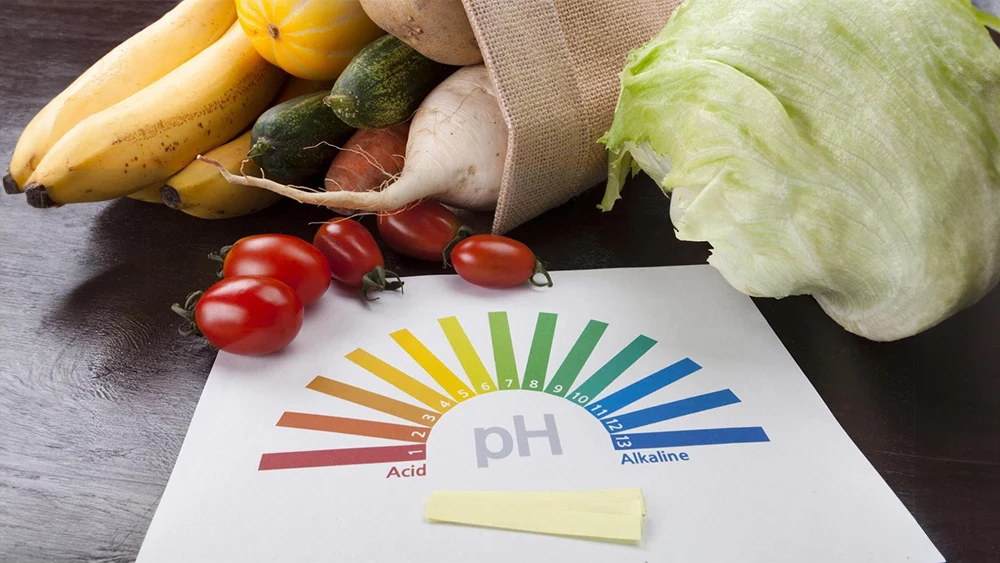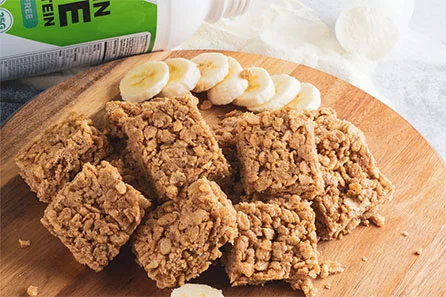In today's fast-paced world, our bodies are subjected to a variety of dietary and lifestyle factors that can disrupt our internal balance, leading to a host of health issues. The concept of body pH balance, often overshadowed by more immediate health concerns, plays a crucial role in our overall well-being. Understanding the difference between acidity and alkalinity in the body, and how to maintain the right balance, is essential for anyone looking to improve their health and vitality.
Understanding Body pH
Understanding body pH is delving into the complex, yet fascinating aspect of human physiology that plays a crucial role in maintaining our health and well-being. The concept of pH, which stands for "potential of hydrogen," measures the acidity or alkalinity of a substance on a scale from 0 to 14. A pH of 7 is considered neutral, below 7 acidic, and above 7 alkaline. This scale is logarithmic, meaning each whole pH value below 7 is ten times more acidic than the next higher value and each whole pH value above 7 is ten times more alkaline.
The Significance of pH in the Human Body
The human body operates within a tight pH range, especially when it comes to blood, which has a normal pH range of 7.35 to 7.45. This slightly alkaline range is critical for the body's biochemical processes and enzyme activities, which can be inhibited or excessively accelerated by deviations in pH. For example, key proteins can denature (lose their functional shape), and essential metabolic reactions can become inefficient outside this narrow pH window.
The Role of pH in Cellular Function
Every cell in our body depends on the balanced pH to function optimally. Enzymes, which are catalysts for chemical reactions in the body, are especially sensitive to pH changes. These enzymes need specific pH conditions to bind to substrates and complete their reactions efficiently. Therefore, maintaining the ideal pH is essential for:
Energy production in the mitochondria
Nutrient absorption and transport
Detoxification processes
Repair and regeneration of tissues
Immune system effectiveness
Mechanisms of pH Regulation
The body employs several sophisticated systems to regulate pH, primarily through the respiratory system, the renal system (kidneys), and buffer systems in the blood.
Respiratory System: By adjusting the rate and depth of breathing, the body can regulate the amount of carbon dioxide (CO2) exhaled. CO2 is a major component of the carbonic acid equation, where it combines with water to form carbonic acid, influencing the pH of blood and other bodily fluids.
Renal System: The kidneys contribute to pH balance by excreting hydrogen ions (acid) and reabsorbing bicarbonate, a base, from urine. This process is slower than respiratory compensation but is crucial for long-term pH balance.
Buffer Systems: The most immediate defense against pH changes is the body's buffer systems, protein and chemical systems in the blood and cells that absorb excess acids or bases. The bicarbonate buffer system, for instance, balances the reaction between carbonic acid and bicarbonate ion, helping to maintain stable pH levels.
High Acidity in the Body: Causes and Effects
High acidity in the body, medically referred to as acidosis, is a condition where there's an excessive accumulation of acid in the body fluids or an inability to adequately clear acid from the body. This imbalance can lead to various health issues, impacting nearly every aspect of the body's functioning. Understanding the causes and effects of high acidity is crucial for maintaining health and preventing potential complications.
Causes of High Acidity in the Body
The causes of high acidity can be classified into dietary, lifestyle, and medical categories, each contributing to the body's acidic load in different ways.
Dietary Factors:
- Acid-Forming Foods: Diets high in meat, dairy products, processed foods, refined sugars, and grains can contribute to an acidic environment within the body. While these foods are part of normal metabolism, excessive consumption can overwhelm the body's natural buffering systems.
- Low Intake of Alkaline Foods: A diet low in fruits and vegetables, which are alkaline-forming, can reduce the body's ability to neutralize acids.
- Dehydration: Adequate water intake is essential for diluting and eliminating acids through urine. Insufficient hydration can hinder this process.
Lifestyle Factors:
Stress: Chronic stress can lead to the overproduction of cortisol, a hormone that, in excess, can lead to an acidic internal environment.
Sedentary Lifestyle: Lack of physical activity can decrease the efficiency of the respiratory and circulatory systems, which play key roles in balancing pH levels.
Alcohol and Tobacco Use: These substances introduce toxins that the body must neutralize and eliminate, often producing acidic by-products in the process.
Medical Conditions:
Renal Failure: The kidneys are crucial in regulating the body's pH by excreting acids. Kidney dysfunction can lead to an accumulation of acid.
Respiratory Disorders: Conditions that impair the lungs' ability to expel carbon dioxide (a weak acid) can lead to respiratory acidosis.
Metabolic Disorders: Conditions like diabetes can lead to metabolic acidosis if the body produces too much acid (ketones) or cannot remove enough acid.
Effects of High Acidity on the Body
High acidity can have wide-ranging and sometimes severe effects on health, including:
Bone Health : Acidosis can lead to the leaching of calcium from bones, increasing the risk of osteoporosis and fractures. The body draws calcium from bones to neutralize excess acid, weakening them over time.
Muscle Function : Elevated acidity can affect muscle function, leading to fatigue, weakness, and cramps. This is because the body may break down muscle tissue to release amino acids that are then used to produce bicarbonate, which neutralizes acids.
Digestive Issues : An acidic environment can disrupt the balance of gut flora and impair the digestive process, leading to indigestion, bloating, and constipation.
Cardiovascular Risk : High acidity has been linked to an increased risk of heart disease. Acidosis can lead to the constriction of blood vessels and an increase in blood pressure.
Immune Function : Acidosis can impair immune function, making the body more susceptible to infections and slowing the healing process.
Skin Health : Skin health can also deteriorate, as high acidity can lead to dryness, irritation, and acne. The skin may try to expel excess acids through sweat, which can irritate the skin.
The Alkaline Advantage
On the flip side, an alkaline body environment offers numerous health benefits. Increased alkalinity can enhance energy levels, improve cognitive function, slow the aging process, and reduce the risk of chronic illnesses. But achieving and maintaining an alkaline state requires understanding and conscious effort, especially regarding diet and lifestyle choices.
- Enhanced Immune Function
- Bone Health
- Reduced Muscle Wasting
- Improved Cardiovascular Health
- Enhanced Detoxification
- Weight Loss and Metabolism
- Cognitive Function
Balancing Act: Diet and Lifestyle Changes
Adjusting your diet is one of the most effective ways to influence your body's pH balance. Foods are classified as acidic or alkaline based on the residue they leave in the body after digestion. Generally, animal-based foods tend to be acidic, while plant-based foods lean towards alkalinity. A diet rich in fruits, vegetables, and whole grains, with reduced intake of processed foods, sugars, and animal products, can help shift the body towards a more alkaline state.
Furthermore, lifestyle modifications such as regular exercise, stress management, and avoiding harmful habits like smoking and excessive alcohol consumption can significantly contribute to maintaining a balanced pH.
Acidic vs. Alkaline Foods
Understanding which foods contribute to acidity and which promote alkalinity is crucial for anyone looking to balance their body's pH. Acid-forming foods to minimize include certain fruits when unripe, processed grains, dairy products, meat, and processed sugars. Conversely, alkaline-forming foods to embrace include ripe fruits, most vegetables, sprouted grains, and certain nuts and seeds.It's also important to note that not all "healthy" foods are alkaline-forming. For instance, whole grains like quinoa and amaranth are considered healthful, they can contribute to acidity in the body when cooked.Similarly, some fruits and vegetables, such as blueberries and rhubarb, may be acidic depending on their ripeness and preparation.
Practical Steps to Alkalinity
Achieving a more alkaline body doesn't have to be complicated. Incorporating more raw fruits and vegetables into your diet, reducing the intake of animal-based and processed foods, and choosing alkaline-forming grains and nuts can make a significant difference. Additionally, simple lifestyle changes such as drinking more water, engaging in regular physical activity, and managing stress can support your body's pH balance.
For those looking to make more substantial changes, specialized diets and cleanses focused on alkalinity, juice cleanses such as with alkalizing ingredients, can kickstart the process towards a more balanced pH. However, it's essential to approach these methods with caution and consult a healthcare provider to ensure they're appropriate for your individual health needs.
Conclusion
The balance between acidity and alkalinity in the body is a fundamental aspect of our health that often goes overlooked. By understanding the effects of pH imbalance and taking proactive steps to maintain a balanced diet and lifestyle, we can significantly improve our health and well-being. Remember, achieving a balanced body pH is not about eliminating all acidic foods but finding the right balance that supports your body's natural processes. Embrace the journey towards a more alkaline state, and your body will thank you for it.










